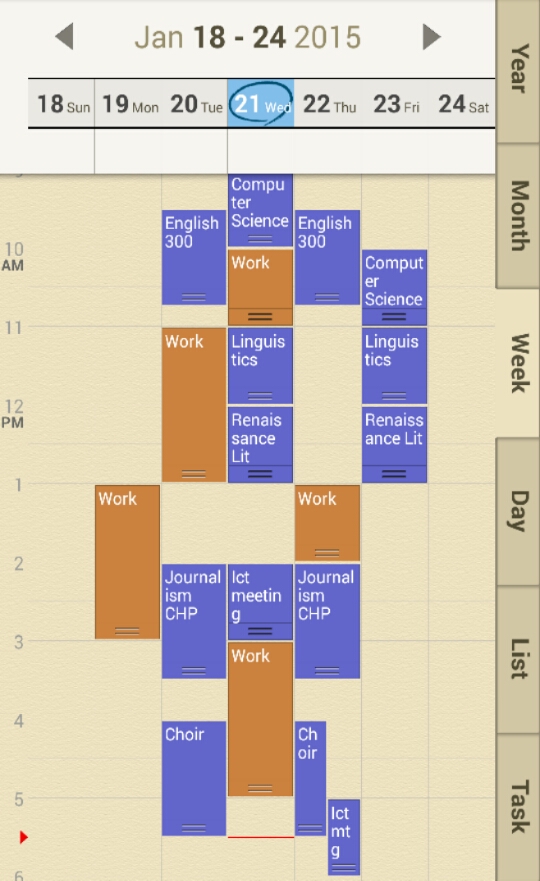Second semester is upon us, my friends. With its cold winds and dark morning skies, it’s a formidable opponent, and procrastination seems inevitable. You know as well as I do that as soon as we start putting things off, stress starts to pile up. As I’ve mentioned before, my disposition is naturally inclined towards anxiety. I’ve had two days of class and I’m already stressed a little. But with the right strategy, we can get through this, and we can make it to spring – stress free.
A Completely Stress Free Semester is a Myth.
You’re always going to have some stress in your life, and stress is good, it helps to motivate us and keep us focused on what’s important. What’s bad is when stress starts to affect your ability to get things done. The key is managing stress and using it to make ourselves productive, rather than panicked. Which is a tall order, but I’ve assembled my best tips to keep you from succumbing to stress.
Learn how you study.
And then play to that strength. If you’re visual, colorful and spatially-oriented notes are your friends. If you’re auditory, record lectures to listen to later or listen to explanatory YouTube videos. If you learn by doing, try explaining your studies to a friend – or even be the one to make those educational YouTube videos. Find something that works for you, specifically, and stick to it.
Take productive breaks.
This is a hard one for me. If I’m taking a break, I want to spend it watching Netflix or something. But when you completely disengage from productivity like that, it’s so much harder to end the break, much less focus once you have. Productive breaks – cleaning, laundry, planning, even working out – keep your brain engaged and make it easy easier to come back to your work.
Set a schedule.
Nothing to stress you out like not having time for everything. Your schedule may vary day-to-day depending on classes, but always set aside time for your work, yourself, and your sleep. Sleeping on a regular schedule is so, so important. I have a hard time with it, but as soon as I establish a pattern, that feeling of permanent fatigue that I know a lot of students have lessens. It’s worth it.
Learn what relaxes you – and make time for it.
Productive study breaks are great, but not all time you spend on yourself is a “study break” – take time to really, truly unwind. For me, relaxing is a mug of licorice tea and writing a blog post. Maybe for you it’s hot chocolate and Netflix, or a smoothie and a workout, or a latte and lunch with your friends. Whatever your go-to method of relaxing is, it’s not selfish or irresponsible to make it a priority. Take care of yourself.
Get excited.
Look, hopefully what you’re studying, you’re studying because you actually like it. Keep ahold of that fondness for your subject and try to get excited about your classes, rather than just trying to pass them. When you let yourself care, it’s much easier to get things done, and you’ll probably have a better relationship with your instructor – which could mean leniency if you need it later.
Laugh.
Indulge in clickbait BuzzFeed articles, watch dumb cat videos, hang out with your most hilarious friend, read a funny book (I’d recommend Douglas Adam’s Hitchhiker’s Guide to the Galaxy if you haven’t read it already). Do whatever it takes to keep yourself laughing and smiling. It’s too easy to get into a rut when you have so many responsibilities, so take some time out to be carefree.
There you go! Hopefully, if you can follow these tips, you’ll be able to keep your sanity until summer, at least. What are your biggest sources of stress? How do you beat them?




